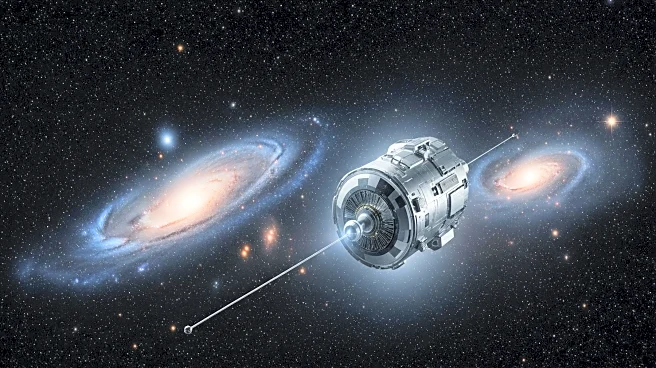What's Happening?
NASA's Artemis II mission, scheduled for 2026, will involve astronauts conducting scientific research in deep space. The crew, consisting of NASA astronauts Reid Wiseman, Victor Glover, Christina Koch, and Canadian Space Agency astronaut Jeremy Hansen, will serve as both scientists and research subjects. They will participate in experiments to study human health in space, including sleep, stress, cognition, and teamwork. The mission will also explore immune system responses and use organ-on-a-chip technology to study radiation effects. The findings will inform future space missions and help develop interventions to protect astronauts.
Why It's Important?
Artemis II represents a significant step in NASA's efforts to understand the effects of deep space travel on human health. The research conducted during this mission will provide valuable insights into how astronauts can be better prepared for long-duration missions to the Moon and Mars. Understanding the physiological and psychological impacts of space travel is crucial for ensuring the safety and performance of astronauts. The mission's findings could lead to advancements in medical technology and personalized treatments, benefiting both space exploration and healthcare on Earth.
What's Next?
The Artemis II mission will pave the way for future lunar and Mars missions, with NASA planning to use the data collected to optimize human performance in space. The agency will continue to develop technologies and protocols to support astronauts during long-duration missions. The research conducted on Artemis II will contribute to NASA's broader Artemis campaign, which aims to establish a sustainable human presence on the Moon and prepare for human exploration of Mars.










